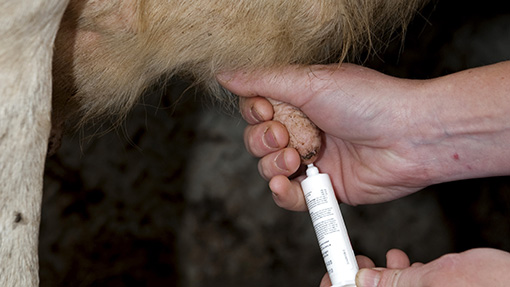MPs push for reduction in antibiotics on farm

Ministers must step up action to stop the unnecessary use of antibiotics in farm animals, say MPs.
They say the use of antibiotics in healthy animals to promote growth has sky-rocketed during the past 40 years.
And if the government doesn’t take steps to curb their routine use, there is danger that antibiotics-resistant bacteria in the food supply will endanger human health.
The warning is contained in a report published on Monday (7 July) by MPs on the House of Commons’ Science and Technology Committee, entitled Ensuring Access to Working Antimicrobials .
“Antibiotics use in pigs and poultry in the Nordic countries is three to five times lower than it is in the UK. These countries have much lower levels of resistance in food poisoning bacteria than that found in many EU countries,” said MPs in the report.
The report also warns that there is “circumstantial evidence” that antimicrobial resistance can be transmitted from animal pathogens to human pathogens. But the report accepted that the evidence base for this remains “incomplete”.
The use of tetracycline antibiotics and penicillin in farming as growth promoters has already been banned.
But the committee is concerned that the total veterinary use of tetracyclines has increased “nearly tenfold” and that of penicillin-type antibiotics “nearly fivefold” since the Swann Report in 1969.
The MPs are calling on the government to take action to ensure the use of antibiotics in farm animals is “strictly required for therapeutic use”.
They also called for more research into the link between animal and human pathogens that are resistant to antibiotics.
Read also: Farming promotes antibiotic resistance in humans
Andrew Miller, Labour MP for Ellesmere Port and Neston, said: “The link between human and animal pathogens antibiotics resistance has not been conclusively proven, but we believe the government should be taking precautionary action to ensure that antibiotics are only being used on sick animals.”
Catherine McLaughlin, NFU animal health and welfare adviser, told MPs that the UK poultry industry had “voluntarily banned the use of some critically important antibiotics at about this time last year” and consequently, had to raise their hygiene standards to be “better than hospitals”, to reduce the increased mortality rate in young chicks.
She pointed out that, although a high standard of hygiene could be achieved in a closed environment, that type of hygiene “would not be possible in the more extensive outdoor-type systems”.
In addition, she said if a ban was introduced on adding antibiotics to feed and water, “it would make pig production in the UK pretty much impossible”.
The National Office of Animal Health (NOAH) said it supported the committee’s call for action to help ensure continued availability of effective antibiotics.
But NOAH chief executive Phil Sketchley said he did not believe that there was widespread routine use of antibiotics in healthy animals. And he described calls to limit the use of antibiotics to sick farm animals as “unrealistic”.
“Vets need to be able to prescribe medicines to prevent and control outbreaks of disease,” he explained.
“Antibiotics can be used responsibly to cure, control and, in exceptional circumstances, prevent disease in animals. They are only prescribed under the control of a veterinary surgeon on the basis of epidemiological and clinical knowledge.”
The Responsible Use of Medicines in Agriculture Alliance (Ruma) said it was “disappointed” that the report recommended the government takes action to limit the use of antibiotics in farm animals for therapeutic use.
Ruma secretary general John Fitzgerald said: “Ruma does not support the routine preventative use of antibiotics, but we do support the view that controlled intervention, in both human and veterinary science, to prevent the outbreak and spread of disease, based on sound professional examination and advice, is better than cure.”
The Alliance to Save Our Antibiotics, formed by Compassion in World Farming, the Soil Association and Sustain, also welcomed the committee’s report.
It reiterated its calls for an end to “routine preventative use of antibiotics” on farm.
Prime minister David Cameron last week announced details of a review into the growing threat of antibiotics resistance to human health.
But the alliance said it was concerned that the review was not expected to report back for another two years and it would not prevent inappropriate farm antibiotics use.
Alison Craig, campaign manager of the Alliance to Save Our Antibiotics, said: “The Netherlands has reduced its farm antibiotics use by 56% in five years, and we should be aiming to emulate this kind of determined action.
“We hope the chief medical officer, and all senior medical and health policy-makers will note this point and take action to right the imbalance.
“We want ministers to set targets to reduce farm antibiotics use drastically, and urgently.”
